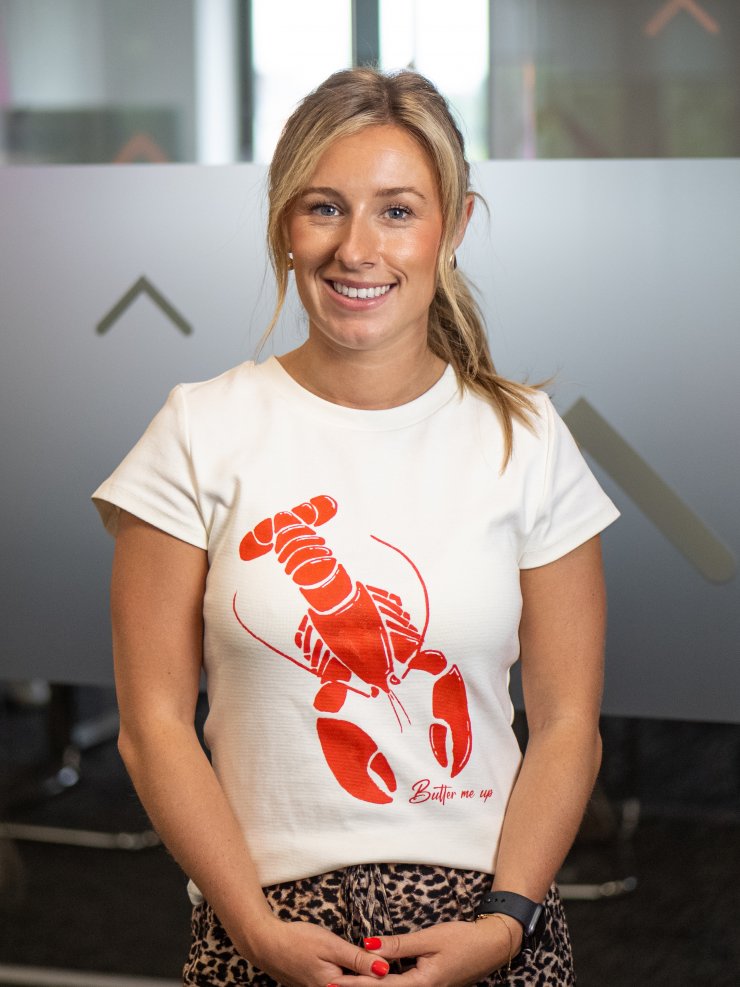Do you want to get ahead of the curve and plan your future marketing strategies based on the travel trends of 2025?
The travel industry is forever undergoing transformative changes, driven by evolving consumer behaviours, technological advancements, a heightened focus on sustainability and macro-economic, social and political factors.
Let's delve into the key trends shaping the future of travel and explore how your business can leverage these insights to enhance customer experiences and drive growth with forward-thinking marketing strategies.
Travel trends for 2025 at a glance
- #1 Leverage technology in research & planning
- #2 Desire for wellness experiences
- #3 Personalised meaningful moments
- #4 Value and flexibility
- #5 Predictable weather conditions
- #6 Eco-consciousness
#1 Leveraging technology in research & planning
More and more travellers are turning to digital channels, AI-driven platforms and social media to plan, influence and book their holidays. Combined with a growing expectation for a seamless digital experience there is a lot of pressure on technology to enhance convenience and personalisation.
Impact on your digital marketing strategy:
- Conduct persona research to understand your customers wants, needs, motivations and barriers to purchase to help inform your content creation and overarching online and offline marketing strategy.
- Encourage user-generated content (UGC) whereby customers share their travel experiences on social media. With permission, use USC within your website, email and social media communications to build trust, authenticity and a community.
- Engage in influencer partnerships to research an audience of highly relevant individuals via authentic content.
- Utilise AI to provide 24/7 customer support which will help to provide instant responses when it comes to researching, planning and booking.
- Leverage AI for planning and itinerary building. AI can help existing and prospective customers build their trips based on their preferences.
- Plan and execute an effective SEO strategy which creates optimised content to meet the needs of users at every stage of the customer journey. Keyword research should focus on informative keywords to improve visibility during the research & planning stage of the journey and commercial keywords to capture users ready to book.
- Inspire through content whether it be videos, audio, guides, tours and static imagery, content should spark wanderlust and curiosity as people dream about their next holiday away.
- Use Paid Search to capture bottom-of-the-funnel customers via campaigns targeting your core, growth and test audiences.
A behavioural principle which can be applied here is reciprocity. By offering valuable, free content or tools, such as travel guides or planning tools, to create a sense of obligation in users, encouraging them to engage more deeply with your brand.
#2 Seeking escapism
Travellers are searching for escapism as a report released by British Airways found that 42% of working adults do not take their full annual leave allocation and 37% feel stressed about work whilst on holiday. According to ABTA, 93% of people say being on holiday improves their well-being and mental health with two-thirds (65%) putting this down to the chance to escape from the stresses of life.
Impact on your digital marketing strategy:
- Highlight wellness-related USPs and in particular the benefits they have on customers' health and wellbeing.
Forest Holidays are a great example of a UK-based travel brand leading the way in highlighting the health and wellness benefits of travel. Not only do they offer a series of wellness-related packages, but they frequently highlight the power of spending time in nature, such as boosting the immune system, increasing vitamin D levels, and enhancing overall well-being.
- Execute a targeted Paid Search and Paid Social campaign which focuses on “wellness” keywords to attract a highly relevant audience.
- Build a digital PR campaign to highlight the benefits of specific holiday experiences on health and well-being.
#3 Creating personalised moments
The desire for meaningful and personalised travel continues to grow as travellers seek a sense of personal growth and fulfilment, whether that be spending time with loved onces, experiencing a new city or enjoying local cuisine and customs.
Impact on your digital marketing strategy:
- Storytelling should be threaded throughout all of your marketing communications. Whether it be blog posts, drone footage, 360-degree videos, VR, Instagram reels, YouTube shorts, or long-form visual or written content, the list is endless, your content should resonate with your audience through the power of storytelling.
- Highlight reviews and testimonials on your website which demonstrate authentic feedback which emphasises memorable experiences.
- Leverage AI and gamification to help customers build personalised travel experiences. AI can be used to provide recommendations, build itineraries and select booking options based on preferences.
For example, KLM Royal Dutch Airlines launched a "KLM Destination Decoder" game. Users were tasked with solving puzzles to discover their ideal travel destination. The game would ask users a series of questions revealing their travel preferences. The aim was to make finding your dream holiday destination fun meanwhile the brand was capturing valuable insights about their customers to provide tailored travel recommendations, and promotional offers and build a sense of loyalty.

#4 Hunting for value and flexibility
Whilst economic uncertainties continue to prevail and consumers become more money-conscious, there is a renewed appreciation for travel. Compared to travel behaviour in 2023, more people are looking to buy flight tickets, book a holiday and allocate disposal income to holidays as they make up for lost travel opportunities during the pandemic. This new appreciation for travel combined with economic challenges such as inflation and rising interest rates, sees consumers looking for value-for-money trips such as all-inclusive holidays and package deals.
Impact on your digital marketing strategy:
- Highlight flexible booking policies on product pages and within your terms and conditions.
- Integrate a comparison function on your website for customers to easily compare options.
- Utilise behavioural principles to decide your price, market your price and demonstrate the value of your price.
- Anchoring: Present higher-priced options first to make your value deals seem more attractive in comparison.
- Scarcity: Emphasise limited availability or time-sensitive discounts to drive urgency.
- Reciprocity: Offer small incentives or discounts to create a sense of obligation, encouraging customers to book with you.
- Offer flexible payment options which allow holidays to be more accessible to a greater audience.
- Introduce loyalty programmes to enable customers to earn points for discounts and rewards on future bookings.
#5 The desire for predictable climate conditions
Consumers are opting for destinations with favourable and predictable weather conditions as the last few years have witnessed devastating wildfires and heatwaves.
Impact on your digital marketing strategy:
- Highlight expected weather conditions via helpful destination guides, FAQs and/interactive components to help customers find the best and safest time to travel based on their preferences. For greater impact, optimise content aligned to common weather-related searches and execute weather-related paid campaigns via social media and programmatic.
- Use real-time weather widgets on your website and in email communications to provide up-to-date weather news for customers.
- Run seasonal marketing campaigns via Paid, Social, Organic and Email to target users at prime research and booking moments for destinations with predictable and reliable weather conditions.
- Create weather comparison tools to allow customers to compare weather conditions in different destinations at different types of the year.
#6 Watching your environmental impact
64% of UK consumers consider sustainability an important factor in their travel decisions for 2023 and beyond. As such, consumers are opting for destinations less affected by climate change, and eco-friendly accommodation but also show a want for travel companies to protect their local environments and demonstrate genuine and transparent sustainability efforts.
Impact on your digital marketing strategy:
- Educate your customers on how they can minimise their environmental impact whether that be whilst staying at your accommodation, booking their travel options, visiting a location or out on an excursion. Building informative, education-driven content can help to demonstrate your commitment to the environment and build trust.
- Promote your sustainability efforts via social media, email marketing and your website to attract environmentally conscious travellers and improve relationships with existing customers.
- Consider how environmentally friendly and sustainable your product is. If you’re able to develop sustainable travel options whether it be through facilities, activities or accommodation you can help capture an audience with growing demands.
Key Takeaways:
- Embrace Technology: Leverage AI and digital channels to enhance personalisation and convenience in travel planning and booking.
- Promote Wellness: Emphasise the health and well-being benefits of travel, using targeted campaigns around wellness experiences.
- Personalise Experiences: Utilise storytelling and AI to offer tailored travel recommendations and engage customers.
- Offer Value and Flexibility: Highlight flexible booking options and value-for-money deals, using behavioural principles to influence decision-making.
- Commit to Sustainability: Showcase and communicate your environmental efforts to attract and retain eco-conscious travellers
Are you looking to skyrocket your travel business with a travel digital marketing agency? Get in touch if you’d like to discuss any of the above and take your marketing strategy to the next level.

MEET THE AUTHOR.
HANNAH TREE
Hannah’s aim is always to deliver higher levels of relevant traffic to her clients’ websites. Proficient with data and analytics, she utilises these to formulate and deliver effective SEO strategies.
On a day-to-day basis, Hannah influences the structure and content of websites to improve ranking for important keywords, as well as to the benefit of the user. She never forgets the ultimate goal and works to ensure this new traffic converts to leads and new customers.
More about Hannah
























